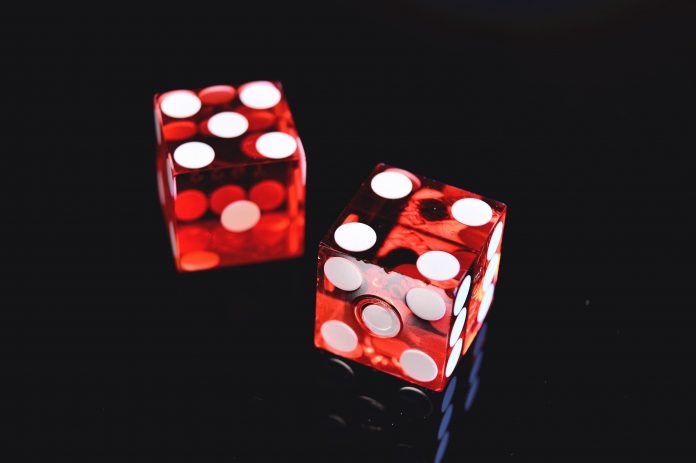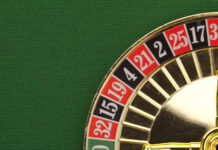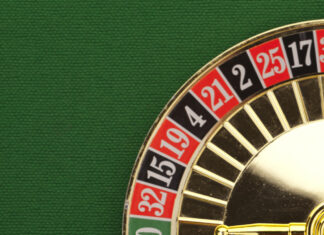
On 3 March 2020, the Dutch Minister of Justice responsible for online gambling policy, submitted the Remote Gambling Decree (Besluit Kansspelen op afstand) (the “Decree”) to the Dutch Parliament’s lower chamber, the House of Representatives. The Decree is part of secondary legislation in which the Remote Gambling Bill (Wet Kansspelen op afstand) is further developed and completed. The Decree contains the conditions applicable to online gambling licences and lays out vital secondary regulation that applies to online gambling in the Netherlands. In addition to the Decree, the Dutch minister also published two letters answering questions which were raised in previous parliamentary debates, including relating to the cooling-off period and the decision not to ban advertising for online gambling.
Extension of cooling-off period by six months
In addition to adopting the Bill in February 2019, the Senate requested that the Dutch government ensure that past offenders are not among the first group of companies that are granted licences to provide online gambling services in the Netherlands. The motion asked the government to ensure that the first licences will be provided to reliable, bona fide, new entrants. A two-year “cooling-off” period was introduced, to ensure that licences for the provision of online gambling would only be issued to parties that have not actively and specifically targeted the Dutch market without a licence for an uninterrupted period of at least two years.
However, as mentioned in our previous blogpost, by delaying the original market opening date by six months, it became unclear whether the cooling-off period would also be extended to match the postponement. The above-mentioned letter that was recently published on this subject clarifies that the “cooling-off” period will be extended by a six-month period to match the delay to the original market opening date. The extended “cooling-off” period of two and a half years prior to making a licence application will be included in the licensing conditions from the Dutch Betting and Gambling Authority.
Restrictions, but no ban on advertising for online gambling
Another adopted motion by the Senate required the Dutch government to investigate the desirability of a complete ban on online gambling advertising. To the satisfaction of both online gambling providers and parties providing advertising services to such providers, the Dutch minister reaffirmed the government’s intention to restrict, but not to entirely ban, gambling advertising. Restrictions will be made with the purpose of the prevention of gambling addiction and consumer protection. Also protection of minors is an important aspect of the restriction of gambling advertising. In his letter, the Dutch Minister clarifies that the choice to restrict, rather than to prohibit advertising for online gambling, is justified because of the nature of the Bill. The Bill has been drafted to strike a balance between, on the one hand, an adequate supply to channel players from illegal supply to legal and safe supply and, on the other hand, a high level of protection in the field of addiction prevention and consumer protection. The choice to restrict advertising will, in practice, mean that strict conditions are imposed on gambling advertising. The Dutch minister clarified that, in the future, more conditions can be added.
The Remote Gambling Decree
As previously mentioned, the Decree sets out the conditions applicable to online gaming licences and lays out vital secondary regulation that applies to online gambling targeting the Netherlands. The Decree deals with the following subjects:
Licences: four types of online gambling
From the moment the Dutch market opens, it will be possible to obtain a licence to organise four different types of online gambling:
- Casino games where the players play against the licence holder;
- Casino games where the players play against each other;
- Betting in relation to (the outcome of) sporting events; and
- Betting in relation to horse racing.
If granted, licences shall be issued for a period not exceeding five years.
Licence holders: reliability requirements apply
Applicants and licence holders must be reliable and comply with all legal and regulatory requirements included in, inter alia, Chapter 3 of the Decree. Such requirements include that applicants must be established in a Member State of the European Economic Area (EEA). If the applicant is not established in the EEA, the applicant is required to open a branch in the Netherlands.
Applicants will be subject to strict reliability requirements. The applicant will, firstly, be subject to a comprehensive reliability assessment by the Dutch Betting and Gambling Authority (the “DBGA”). This assessment will not only concern the applicant itself, but could also concern its ultimate shareholder(s) and director(s). The applicant must provide the DBGA all relevant information concerning, amongst other things, its corporate and financing structure. In the context of testing reliability, the applicant must be able to demonstrate that there are no criminal, administrative or tax law antecedents.
The organisation of remote gambling games; technical requirements; consumer protection
Licensed games must be compliant with the technical and organisational requirements and consumer protection requirements as set out in Chapter 4 of the Decree. These technical and organisational requirements and consumer protection requirements include a range of requirements regarding the integrity of the licence holder, the way in which the player’s registration is carried out and the policy to prevent gambling addiction. In addition, several requirements relating to the provision of information, payment transactions and advertising apply to licence holders. We will address a few of these requirements briefly below.
- Identification – The Decree stipulates that the licence holder shall identify and verify the identity of the players. In addition to that, the licence holder will also have to enable players to identify themselves with every login.
- Playing behaviour – The Decree includes several measures that allow a player to gain and maintain control over his playing behaviour. The licence holder organising online gambling games has an active duty of care to assist the player as much as possible in assuming his own responsibility. The same applies to holders of a licence to operate casinos and amusement arcades.
- Prevention policy – As mentioned above, licence holders are also required to create, implement and maintain an addiction prevention policy. The addiction prevention policy must be based on a risk analysis that has been carried out by the licence holder and with regard to the specific offer of the licence holder.
- Information requirements – With regard to the information requirements, the Decree stipulates that the licence holder must adequately inform the player to prevent any misleading practices. For example, the licence holder must inform the player of the chances of winning and the rules of the game. In addition, the licence holder must ensure that the player can easily contact him. Specific information should be provided by the licence holder on the interface of the game and the specific interface of the player.
- Payment transactions – The licence holder should ensure that each player has an account which contains the ‘game-credit’ of the player. All financial transactions related to the licenced online gambling games must go through this account. In the Decree’s explanatory memorandum it is, further, clarified that the ‘game-credit’ may never be negative as a negative balance is in fact a form of financial credit/lending.
- Advertising – Licence holders are not allowed to aim their advertisements at vulnerable groups, such as minors and persons exhibiting characteristics of risky gaming behaviour. Specifically with regard to minors, the Decree contains several rules that address the distinction between gambling games and ‘ordinary computer games’. Gambling games that have a high risk of addiction are not prohibited under the Decree, but should be strictly regulated.
- Criminal behaviour – In light of the prevention of criminal behaviour and the integrity of the licence holder, Chapter 4 of the Decree also contains rules on the prevention of money laundering and fraud. Match fixing is also addressed: licence holders, amongst other things, are required to analyse the competition in question with regard to manipulation.
Supervision and enforcement
The DBGA is responsible for monitoring and enforcing compliance with the Dutch gambling legislation. To this extent, Chapter 5 of the Decree contains additional enforcement measures such as a control database (a database which contains data relevant for enforcement), reporting obligations for the licence holder and direct access from the gaming authority to the primary systems of the licence holder.
The games of the licence holder are, furthermore, subject to inspection. The entire game system and any parts thereof that are modified, must be inspected by a designated, accredited inspection body before being put into operation. Inspection also includes testing and certification.
Please note the Decree also amends the existing Dutch Gambling Decree (Kansspelenbesluit) and the Decree on gambling recruitment, advertising and addiction prevention (Besluit werving, reclame en verslavingspreventie kansspelen).
Next steps
The aim of the legislator is to have the Decree enter into force on 1 January 2021, together with the Remote (online) Gambling Bill. However, a staged entry into force of the Decree is possible. Several subjects included in the Decree will still have to be further elaborated in ‘further legislation’, as indicated in the Decree.
The DBGA clarified that, depending on the entry into force of the Remote Gambling Bill, it is still expected that applications can be submitted to the DBGA for an online gaming licence as of 1 January 2021. The plan is that the market for online games of chance will open six months later.









